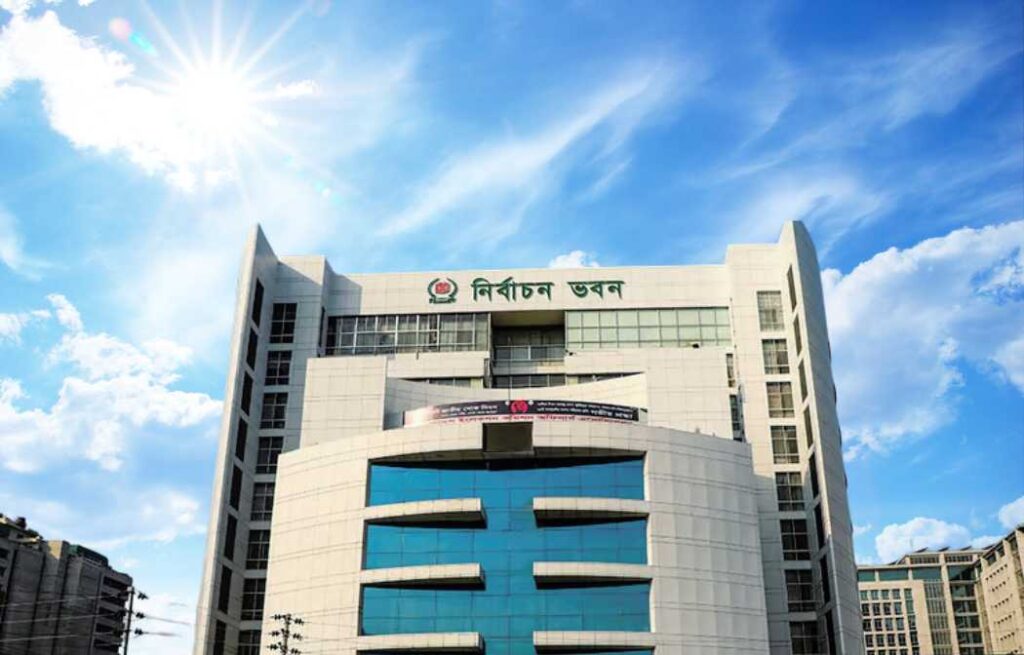Imagine an election where all the candidates win. Not because they campaigned the hardest, not because they had the most persuasive speeches, but simply because they were the only ones in the race. That’s the scenario that just unfolded in Bangladesh, where a remarkable twist in their parliamentary election system has resulted in 50 women claiming seats in parliament – without a single vote cast!

As none of the candidates withdrew their nominations for the 12th National Assembly’s reserved seats for women, the Election Commission (EC) declared them all elected unopposed. The returning officer (joint secretary) Muniruzzaman Talukder said that the gazette will be published next Tuesday (February 27) announcing the winners of the 50 candidates of the reserved women’s seats.
Sunday (February 25) was the last day for the withdrawal of nominations for the reserved women’s seats in the 12th National Assembly. However, none of the candidates had withdrawn their nomination till 4 pm.
50 Women Take Bangladesh Parliament Seats in Unprecedented Move
So, how did 50 women become instant parliamentarians without facing an opponent? It’s because of Bangladesh’s unique system of reserved seats for women. These seats, accounting for 50 out of the 300 in parliament, are allocated to parties based on their performance in the general election. This time, the ruling Awami League and its allies secured 48 seats, while the opposition Jatiya Party got two.
But here’s the twist: no other party nominated candidates for these reserved seats. This meant that all 50 nominated women – representing diverse backgrounds and experiences – automatically became MPs.
A Victory for Women, But Not Without Questions
Who gets the reserved seats for women?Seats are distributed among parties based on how many seats they win in the main election. Think of it like a pie being sliced based on each party’s size.
In this case, the ruling Awami League, with the help of some independent MPs and allies, scored the lion’s share – 48 reserved seats. The opposition Jatiya Party got two.
- The Awami League won a whopping 224 seats in the general election.
- Jatiya Party snagged 11 seats.
- The 14-party alliance, led by the Awami League, saw its Workers Party win one seat, and JASAD grabbed another.
- Even the Bangladesh Kalyan Party got a seat in the mix.
On February 18th, both the Awami League and Jatiya Party submitted their candidates for the reserved seats. All nominations were deemed valid, and the stage was set.
February 25th was the deadline for anyone else to challenge these candidates. But here’s the twist: no one did! With no competitors, all 50 nominated women automatically became MPs.
Now, the official gazette announcing these unopposed wins is expected to be published on Tuesday. Then, these women will take their oaths and officially join parliament.
So, while the election process might have been quiet, the impact is anything.
How Seats Were Allocated and History Was Made: Breaking Down the Unopposed Wins
Here’s how the pie got sliced:
- The number of reserved seats each party gets is like their share of the pie, determined by how many seats they won in the main election. So, the Awami League, with its impressive showing, secured the biggest slice – 48 seats. The Jatiya Party, while smaller, still got a couple of slices (two seats).
- This system ensures that women have a chance to play, regardless of their party affiliation.
- But here’s the twist: no other party decided to challenge the Awami League or Jatiya Party’s nominations. everyone decided to focus on different sections of the pie, leaving these 50 seats uncontested.
Meet the New Faces (and a Few Familiar Ones):
- Party Loyalty: 1,549 women bought the Awami League’s nomination forms, demonstrating their dedication to the party.
- Experience Counts: Seven women from the previous parliament’s reserved seats made a comeback, offering continuity and knowledge.
- New Blood: 34 fresh faces, including party officials like Education Secretary Shamsun Naher Chapa and Health Secretary Rokeya Sultana, bring new perspectives.
- Second Chances: Four female leaders who couldn’t contest or lost in the general election get a platform through the reserved seats.
This election is just the beginning of the story. Follow Bangladesh Reports for more updates.
Thank you for your sharing. I am worried that I lack creative ideas. It is your article that makes me full of hope. Thank you. But, I have a question, can you help me?